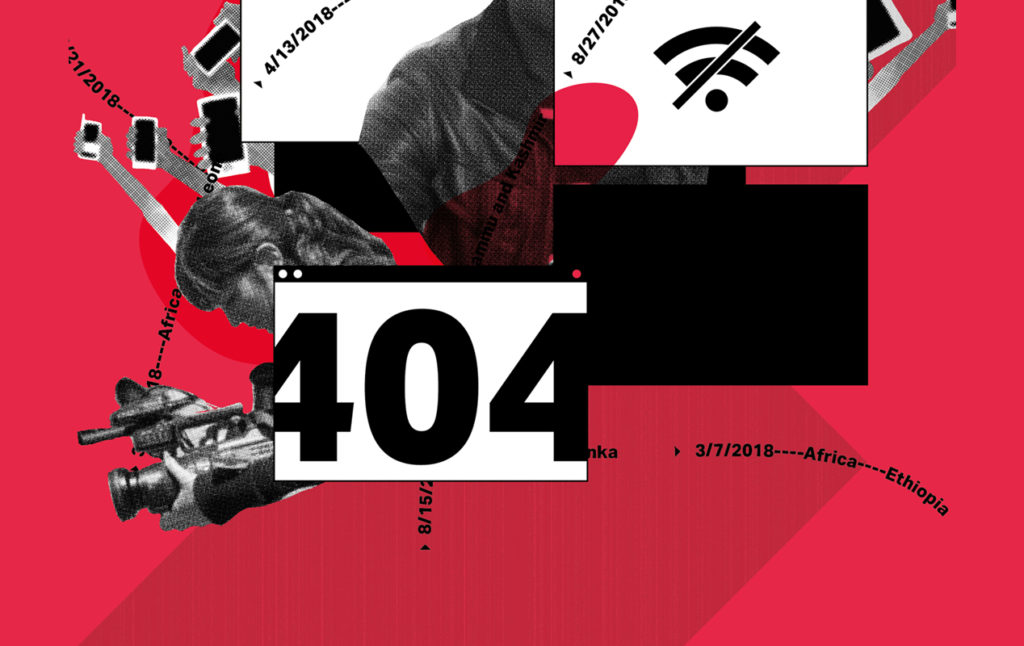As civil society organizations, and members of tech communities, we are alarmed by the internet shutdown in the city of Saqqez, Kurdistan Province. This is Iran’s third internet shutdown in less than 12 months, and the repressive, knee-jerk response to recent protests seriously interferes with people’s right to freedom of expression and assembly.
On September 16, 2022, in protest over the death of Mahsa Amini, dozens of people came to the streets of her hometown, Saqqez, Kurdistan Province, to mourn. During this protest, authorities cut off mobile data, and reportedly disrupted Instagram and WhatsApp. The order was given by the Provincial Security Council (شورای تامین استان in Farsi) — the provincial-level division of the National Security Council chaired by the governor.
On September 14, Iran’s so-called morality police arrested Mahsa, 22 years old, in Tehran for what the government described as “improper” hijab. Two hours later, authorities informed Mahsa’s family that their daughter had been taken to a hospital. She died the next day after falling into a coma.
As of this writing, September 19, the shutdown is ongoing. The shutdown appears to discriminate against users through a high level of tiered access. While individual users were blocked from accessing the global internet, local data centers and, as a result, all local businesses, maintained access on Iran’s National Information Network (NIN). In turn, local businesses and the economy are less impacted by the shutdown. Internet shutdown expanded to the city of Sanandaj as protests escalated and all mobile operators shut down data. On September 18, MCI and IranCell started to block text messages containing the words “Mahsa Amini” in Farsi.
Under Article 35 of the International Telecommunication Union (ITU), to which Iran is a state party, state parties have a right to “suspend telecommunication service, either generally or for ‘certain kinds of correspondence’”. However, the state party is responsible for “immediately notifying” other state parties and the Secretary-General when suspending access.
We call on the ITU and Secretary-General, in compliance with Article 35 of its constitution, to call on Iran to clearly denounce the internet shutdown and the state’s reasoning for it to the general public, and reflect the internet in its annual report ranking.
We also call on the Iranian government to enact policies, practices, and legislation in line with international human rights law that recognizes the fundamental role that the internet plays in the exercise of human rights, and guards against shutdowns. It must acknowledge that restricting access to the Internet is a serious violation of international human rights, in particular freedom of expression and the right to protest within the International Covenant on Civil and Political Rights (ICCPR), of which Iran is a signatory. Authorities must ensure Iran’s citzens and residents can enjoy these rights without discrimination or impediment.
In the past, the Iranian government has demonstrated a similar pattern of preferential treatment and tiered access, in which institutions including banks, news agencies, police stations, and government offices have remained connected to the internet, while regular people in Iran, who use the same ISPs, have been disconnected. Authorities must do everything in their power to ensure internet access for all in Iran.
Signatories
Access Now
Advocacy Initiative for Development (AID)
Africa Freedom of Information Centre (AFIC)
Africa Interactive Media
Africa Media and Information Technology Initiative (AfriMITI)
Africa Open Data and Internet Research Foundation
African Freedom of Expression Exchange (AFEX)
Amnesty International
ASL19
Association for the Human Rights of the Azerbaijani People in Iran (AHRAZ)
Baloch Activists Campaign (BAC)
Center for Digital Resilience
Center for Supporters of Human Rights
Common Cause Zambia
Digital Rights Kashmir
FEMENA
Fundación Karisma
Ideas Beyond Borders
ILGA Asia
Innovation For Change (I4C) South Asia
JCA-NET(Japan)
Kijiji Yeetu, Kenya
Kurdistan Human Rights Association-Geneva (KMMK-G)
Kurdistan Human Rights Network
Life campaign… No to the death penalty in Kurdistan
Media Foundation for West Africa (MFWA)
Miaan Group
NIAC
PEN America
Ranking Digital Rights
Reporters Without Borders
ReThinking Foreign Policy
Sassoufit Collective
Software Freedom Law Centre, India
Southeast Asia Freedom of Expression Network (SAFEnet)
United for Iran
Women ICT Advocacy Group (WIAG)
Women of Uganda Network (WOUGNET)
Zambian Bloggers Network
